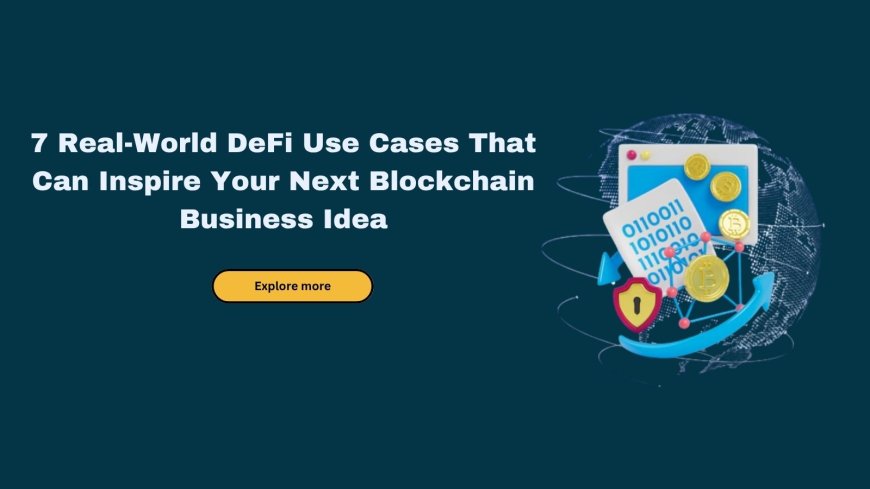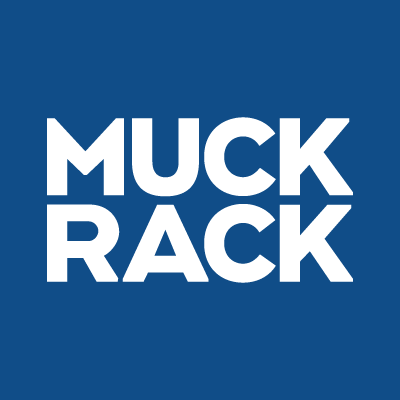7 Real-World DeFi Use Cases That Can Inspire Your Next Blockchain Business Idea
Discover 7 impactful DeFi use cases that offer lucrative business ideas and real-world solutions for 2025 and beyond.
Are you the person exploring the blockchain sector to create something new and valuable? Then DeFi offers you a great space. Let's be honest, there is a lot of voice revolving around crypto—price swings, risk, and more. Among the voices, a silent revolution is still happening. From lending and borrowing, payments, gaming, and autonomous trading, DeFi is changing the rules. Additionally, it creates an actual business model that actually scales. In this article, let’s explore the 7 real-world DeFi use cases that help you establish your crypto venture idea.

So, Ready? Let’s dive in.
#1. Bank-Free Lending and Borrowing
Lending and borrowing are the most popular DeFi use cases.
Everyone knows that our traditional lending relies heavily on institutions like banks, credit agencies, and regulators. That creates friction, especially for people without a formal credit history.
In contrast, DeFi lending platforms allow anyone to lend or borrow crypto assets using smart contracts. Protocols like Aave and Compound let users deposit tokens, earn interest, or take out loans by providing collateral.
As of Q1 2025, DeFi lending protocols held over $28 billion in total value locked (TVL). Beyond numbers, this data shows how much these platforms gain users’ trust.
So, building a DeFi lending platform lets you run a profitable, people-beneficial platform.
Where can you build?
-
A lending app focused on a specific community or niche
-
A platform that offers stablecoin loans for freelancers or gig workers
-
A system that combines crypto lending with fiat off-ramps
The opportunity lies in making credit more accessible, without needing a bank.
Next…
#2. DeFi-Powered Global Transfers: Fast, Low-Cost, and Borderless
Another highly beneficial DeFi use case is that it enables cross-border payments.
Honestly, sending money across countries is still a pain. Between high fees, delays, and hidden conversions, traditional systems haven’t caught up.
DeFi solves this with stablecoin-powered, on-chain payments. Whether it's USDC, DAI, or even mobile-first networks like Celo, users can send money globally in minutes.
To put it in perspective, in 2024, the volume of stablecoin transactions on-chain passed $11 trillion, more than what Visa processed that year.
So, creating a DeFi payment system is one of the proven and useful DeFi use cases.
You can create:
-
A remittance app for underserved regions.
-
A crypto-native payroll platform for remote teams.
-
A B2B invoice settlement system using stablecoins
These are some common ideas, you can use your own innovation in this DeFi payment gateway.
This is one of the successful use cases, but the real opportunity lies in localizing and simplifying it for people who aren’t tech-savvy yet.
Next DeFi use cases are…
#3. It Makes Real-World Assets Accessible via Tokenization
With DeFi, real-world assets like real estate, art, farmland, and even carbon credits can be tokenized and traded on-chain.
There are some successful platforms like Centrifuge, RealT, and Tangany that are already tokenizing real estate and other physical assets. According to Boston Consulting Group, the market for tokenized RWAs could reach $16 trillion by 2030.
The tokenized assets can be used for lending, borrowing, staking, trading, and more. So, a user can increase their asset value by engaging in these practices.
To run a tokenization-related DeFi business, you can build:
-
A marketplace for tokenized property in developing countries.
-
A platform that allows fans to invest in a music artist’s royalties.
-
An investment app that lets users buy shares of rare collectibles.
The key advantage here is access. People no longer need $100,000 to buy into real estate, they can start with $100.
Tokenization is one of the most useful DeFi use cases, benefiting asset owners and investors a lot.
Next, one of the innovative DeFi use cases is…
#4. DeFi Games That Pay
Most of us think gaming is only for fun and entertaining purposes, but it’s WRONG! Think again. Gaming is evolving into an economic layer now, and DeFi paved the way for it.
Instead of earning points, players can now earn real digital assets and trade them in open markets.
Successful games like Aurory, Gods Unchained, and the Treasure ecosystem have shown that well-designed in-game economies can flourish.
What’s interesting is that the gaming audience is massive around the globe. Over 3.3 billion players worldwide, but most games still use closed economies. That’s a great opportunity to build a high-demand and lucrative business with DeFi gaming.
To establish a DeFi gaming-related business, you can build DeFi protocols for:
-
A decentralized NFT rental system for game assets.
-
A DeFi yield system where gamers can stake items to earn rewards.
-
A multi-game inventory marketplace powered by DeFi.
These gaming economies need infrastructure, not just games. That’s where a smart founder can stand out.
Moving forward, a standout DeFi use case is…
#5. Decentralized Autonomous Organizations (DAO)
Once upon a time, DAOs (Decentralized Autonomous Organizations) started as experiments, but now they’re managing treasuries, running investment funds, and even launching products more successfully.
DAOs (Decentralized Autonomous Organizations) enable individuals to collaborate and reach decisions collectively, free from supervision. Members cast votes on proposals, oversee collective funds, and employ automated regulations (smart contracts) to operate the organization transparently and equitably on the blockchain. Its governance is driven by the community.
As of early 2025, DAOs control over $2.7 billion in capital across different use cases—from art and gaming to real estate and social projects.
So, you might think like: “Why does this matter for business?” Because DAOs let you launch and fund an idea without going through VC channels. Instead, you build around a community.
Some startup-friendly directions include:
-
A launchpad for community-owned startups.
-
A governance tool that simplifies DAO participation.
-
A venture fund DAO that invests in impact-driven projects.
It’s not about replacing companies, but empowering people to own a part of the ideas they believe.
One more cutting-edge DeFi use case worth mentioning is…
#6. Decentralized Exchange Platforms
With the decentralized exchange (DEX), users can swap, trade, and invest in cryptocurrencies without any centralized controls. Unlike CEX platforms, DEX solutions won’t ask for an individual’s personal identities and KYC to access crypto trading.
Platforms like Pancakeswap, Uniswap, and Sushiswap are great examples of DEX. These platforms’ owners earn every time a user makes an activity like a withdrawal, trade, token swap, and more.
By launching your own DEX platform, you can establish a lucrative and future-proof venture in the DeFi space.
Why is launching a DEX a promising idea?
-
In 2024, Uniswap alone processed over $1.8 trillion in trades.
-
DEXs now account for more than 21% of all crypto trading volume.
-
More traders are moving to platforms that offer self-custody and privacy.
DEX development is one of the best DeFi use cases that benefits both founders and users.
Following that, one of the most impactful DeFi use cases is…
#7. DeFi Staking
Staking has become more than just a technical feature, it acts as a core revenue model for DeFi users and businesses.
By locking tokens in DeFi staking protocols, users help secure networks or support liquidity. Users who provide liquidity are rewarded, typically with liquidity provider (LP) tokens, as an incentive for their contribution.
Platforms like Lido, Rocket Pool, and StaFi are leading the charge in both ETH staking and liquid staking models.
This DeFi staking software opens the door for
-
A retail staking platform for small investors
-
Liquid staking for niche tokens beyond Ethereum
-
Multi-token dashboards where users can track and optimize earnings
Running a DeFi staking platform is similar to running a financial services company that offers interest. Moreover, the DeFi staking allows users to lock their funds for both fixed and flexible periods. This is a key factor driving the growing popularity of staking.
Staking isn’t just about yield, it’s about participation with incentives. If your platform is easier to use, the more people will engage with it.
Final Notes
Each DeFi use case points out real user problems and gives a perfect solution for them. The demand for innovative and different DeFi platforms is always increasing. By offering an ideal and different DeFi solution, you can run a business that stands out in the DeFi competition. To start a venture in DeFi, you don’t need to be a tech expert. By hiring a DeFi development company, you can build your own solutions and run a venture without hiring a large team of resources.












































































![https //g.co/recover for help [1-866-719-1006]](https://newsquo.com/uploads/images/202506/image_430x256_684949454da3e.jpg)

























![[PATREON EXCLUSIVE] The Power of No: How to Say It, Mean It, and Lead with It](https://tpgblog.com/wp-content/uploads/2025/06/just-say-no.jpg?#)






















































